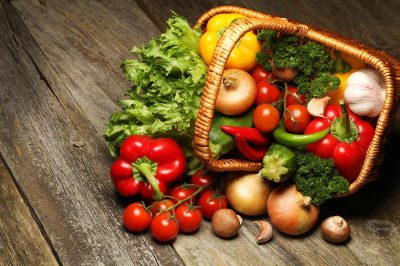Local and in Season Foods
We are used to eating grapes all year round, yet they are only in season during the summer. We are accustomed to eating tropical fruits even if we live in temperate climates. The price of transporting and growing these crops commercially is a cost the consumer is not directly paying for in terms of money (the earth is picking up that bill), but we do pay when it comes to taste and nutritional content.
When we buy foods that are in season they are cheaper, especially if we buy them locally. The benefit of buying local is that you have the best possible produce and you are stimulating your local economy. Many farmers’ markets also have people who sell prepared meals and this is a great buy because again, you are stimulating your own economy and buying something nutrient rich.
Remember, you can wash and freeze much of the produce you buy. You can also can tomatoes and fruits, or make jams. This is not at all hard and it is practically free, prepared food. When in need you can just open a can and you have a meal. The best book I have found about preserving food is Oden Schwarts’ Preserving. It is out of print but can be purchased online at Amazon.
Buying local and in season can be easy if you know where to look.
Here are a few more tips:
- 1. Find a local farm, buy a share and you can pick up your produce weekly.
- 2. Find out who is growing what in your neighborhood (stimulate new economy).
- 3. Plant your own.
- 4. Buy frozen.
Coupons and Sales
Depending on where you live, you may or may not have access to coupons. Coupons can save you money or cost you more if you are not coupon wise. Don’t fall into the trap of buying it just because you have a coupon or you may be spending more.
I’m always trying new things because I tend to buy what is on sale and most of the time this works out, especially after a close inspection of the label. Check labels for expiration dates, packing dates and most importantly, for cheap ingredients like artificial colors, artificial flavors, and hydrogenated oils or words you cannot read. Such products are not a steal; they are robbing you and your family of good health.
Some more tips to follow:
- 1. Be coupon wise
- 2. Look for buy 1 get 1 free deals for things you use
- 3. Buy sale items
- 4. Buy non-brand names
The bottom line is that homemade, local, and in season are the most cost effective and nutritious choices you can make. Not only do these choices make more sense, they taste better.
Plan meals ahead and make a shopping list so you don’t buy too many unnecessary items. This will all help you stay within you budget and inshallah, have some money to spare.
This article is from our archive, originally published on an earlier date, and highlighted now for its importance
Pages: 1 2

